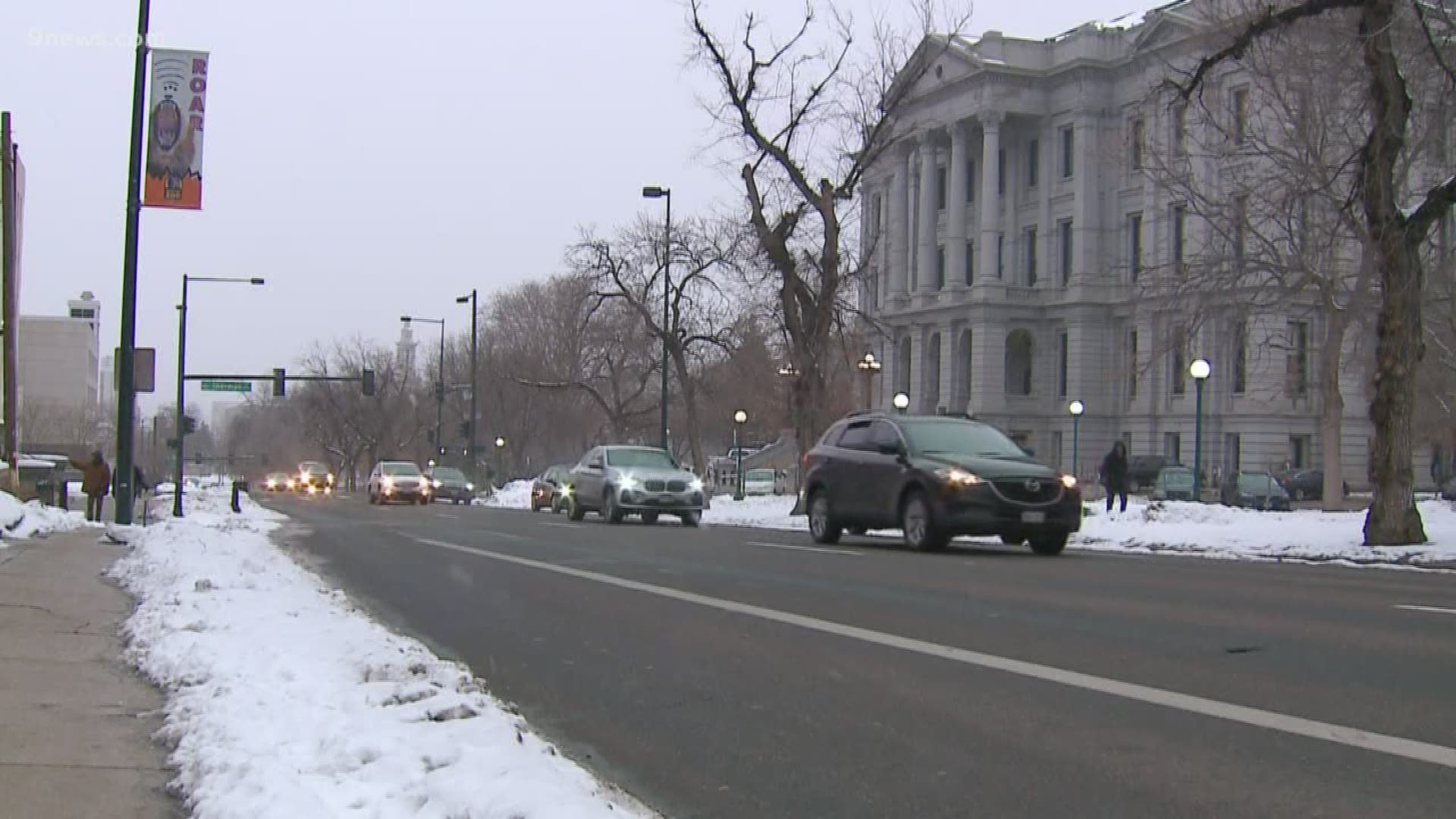DENVER — Think back to Saturday afternoon when temperatures reached into the 50s and you were more than likely cramming in outdoor activities between snowfalls.
Temperatures swings like that are a big part of the reason why Denver's roads are pretty beat up. It's called a "freeze-thaw cycle."
"Water is insidious," said 9NEWS science expert Steve Spangler. "It's the only liquid that we know that when it freezes when it turns into a solid, it expands."
Spangler said when that expansion happens, it creates little pockets under the roads. That means anything heavy, like a car, can "crush it."
"It's so powerful when it freezes, it can break rock, it can break pipes," he said. "It's extremely powerful."
Heather Burke with Denver's Department of Transportation and Infrastructure (DOTI) said crews fill potholes every day as long as the weather allows.
In 2019, city crews filled more than 67,000 potholes which Burke said is actually lower than in previous years. She said they typically fill between 60,000 to 100,000 potholes a year.
Burke said the lower number of potholes is partially thanks to the Elevate Denver Bond which voters passed in 2017. About $45 million from the bond was set aside specifically for paving projects. Last year, the city used $15,000 and $10,000 has already been allocated for 2020.
In December, DOTI said crews paved 519 lane miles during 2019 across the city which is the most ever in a single year.
Denver's bigger plows have rubber and ceramic bottoms to "flex if contacting obstacles and to provide a squeegee effect" on roads, according to DOTI.
A majority of potholes are filled through "proactive patrols" where crews fill potholes as they see them, Burke said. They also respond to reports they receive when people call 311 or reach out through the city's website or mobile app.
SUGGESTED VIDEOS | Science is Cool

